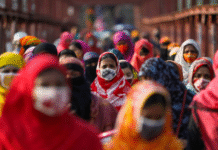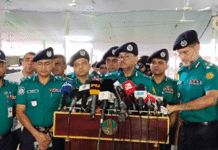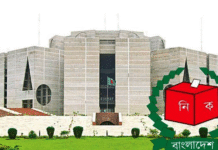It risks undoing the goodwill garnered by Bangladesh over the years

As of yesterday, the government has started relocating Rohingyas from the refugee camps in Cox’s Bazar to Bhasan Char, an island in the Bay of Bengal under Hatiya upazila of Noakhali, amidst calls by the UN and other human rights organisations to halt the relocation process. In a statement on December 2, the UN stated that it had not been allowed to carry out technical protection assessments and humanitarian missions to the island despite repeated requests, nor has it been involved in the preparations for the relocation. There are widespread concerns that the island is flood-prone and may get submerged during tidal surges, and that there is limited access to healthcare and other facilities compared to the Cox’s Bazar settlements, where various national and international organisations have been working together for years to ensure the basic rights of the refugees.
The government has cited the destruction of forest and hills and risk of landslides in Cox’s Bazar as reasons for choosing the island as a temporary housing site. While we understand the compulsions of the government, which has thus far graciously hosted 900,000 Rohingya refugees living in the Cox’s Bazar settlements at a heavy price, we are at a loss to understand why the UN, which has played an integral part in the refugee resettlement thus far, have been left out of the relocation process, and why their assistance, as well as their assessments, have been turned down.
Such a stand-off between the UN and the GoB is not productive in the least and risks undoing the goodwill garnered by the latter over the past three years. It is of utmost importance that we remain transparent in our dealings both with the refugees themselves and with our development partners. We must dispel the concern that refugees who have volunteered to relocate have been provided misleading information about the actual conditions at the camps, and ensure that journalists and aid workers have free access to the refugees during and after the relocation.
The UN, which has offered to review the safety, feasibility and sustainability of Bhasan Char and develop plans and budgets, in consultation with GoB and other NGOs, INGOS and donors if they find they can engage operationally on the project, must also understand why the GoB is running out of patience. We urge the UN to be more realistic and sympathetic towards a country that has done so much and now faces an ecological disaster in the areas where they are currently hosting the refugees.
There is still time for both parties to work together to resolve the current stalemate. We call upon both the GoB and the UN to do so without further delay, prioritising the rights and rehabilitation of the refugees who have already lost everything they once held dear.









